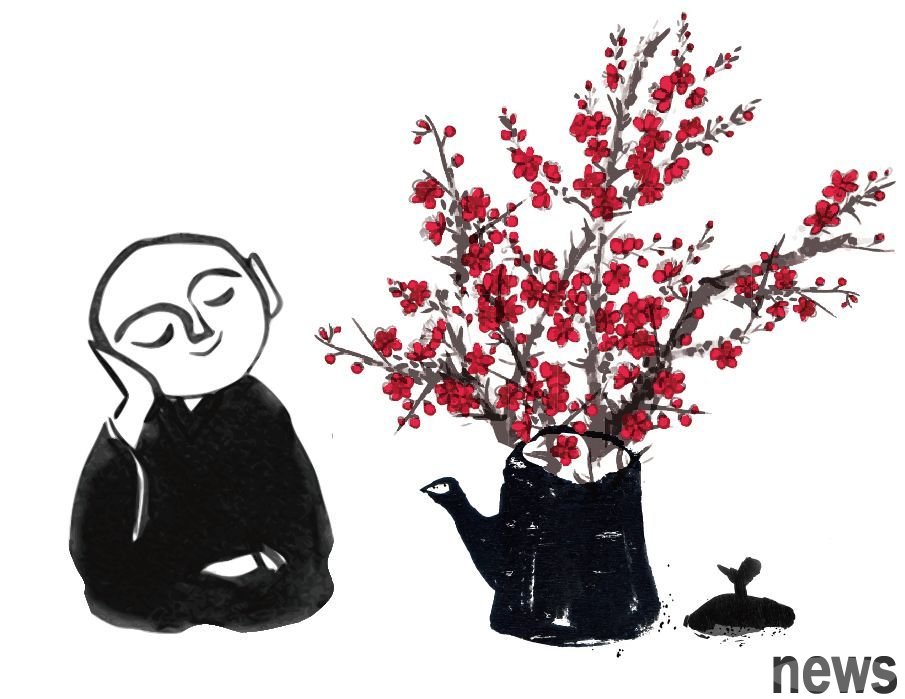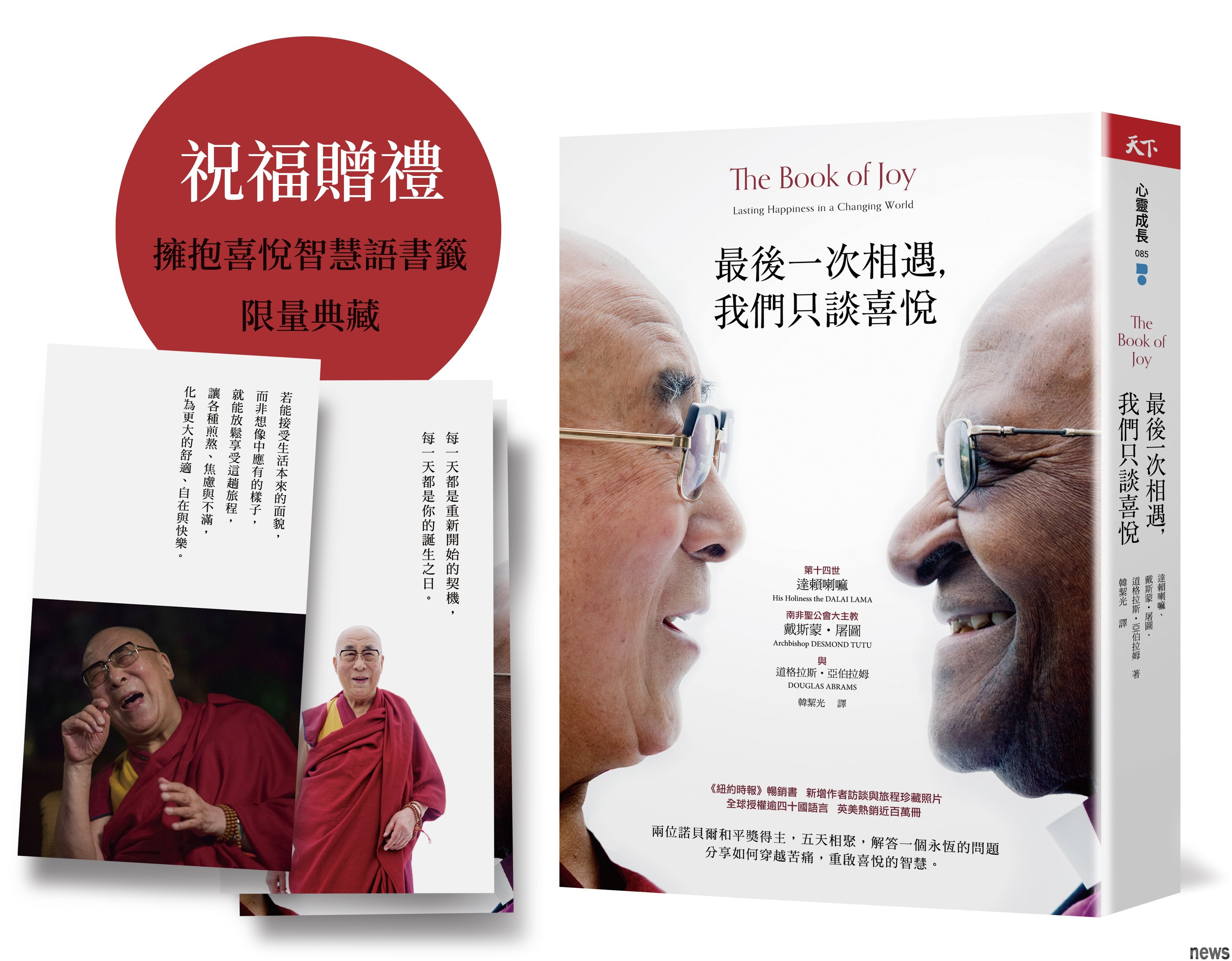
Most religious beliefs are prestigious, and people cannot enjoy the happiness that lasts through their senses. Although our senses can enjoy fun for a while, that kind of happiness is finally fleeting and cannot bring endless satisfaction. Buddhism says that the sensual enjoyment of the sensuality is no different from drinking to quench thirst. But what is the relationship between joy and enjoyment? What does the happiness of the physiological level and the happiness of the spiritual level have to do with the happiness of the spiritual level?
Everyone must be able to enjoy food without tying it."Honor, many people think that you, as a monk, will give up a lot of fun and enjoyment."
"I don't have sex." Lama Dazhang added, although I didn't want to talk in that direction.
"What are you talking about?" said the Archbishop.
"Sex, sex life." Lama Dazhang said again.
"You said that?" the Archbishop said in disbelief.
"Oh." When he found out that the Archbishop was shocked, Lama Dafeng laughed, and at the same time he reached out to ask him to rest assured, which made the Archbishop laugh.
"So, let's not talk about sex," I said, wanting to bring the topic back, "Did you really give up all the fun? I sat next to you while having lunch, and you look very enjoyable. What kind of role do you think enjoyment plays in life?"
"I love food. Without food, my body can't survive, and you're the same . . " He turned his head to the Archbishop, "You can't just think about God, God, God all day long. I can't just think about having a heart of love, having a heart of love. There is no way to fill your stomach with a heart of love. But every meal we have to cultivate the ability to enjoy food without tying about food."
Do not eat for the sake of raising one's body, one must think about the deeper meaning of feeding one's body."Ah? What does it mean?" The Archbishop asked, not quite understanding what Lama Dazhe used to attach (attachment) here, and perhaps not quite understanding how anyone can not be attracted to food.
"Don't eat for the sake of living," said Lama Dafeng, "Eating should be for survival only. People must think about the meaning of feeding their bodies deeper."
Once, when I ate, Lama Dafeng gave me his bowl of barley and yogurt and said, "This is the food that Tibetan monks have traditionally eaten, and I love the most." He ate the meal with relish. I felt a deep breath, and it turned out that Christmas people might not have to forbidden some pure fun in life, such as a ton of delicious dishes, especially cheese.
I am quite sure that Lama Dazhe gained great joy when he was eating that little bit of fun. He clearly also gets joy from the senses. I don't quite understand where the boundary between love and ate is. Is it a problem that you can't eat the second or third portion? Or is it a temporal question for every bite of food?
Jinba shared a famous verse with me. Tibetan Buddhists often silently before eating: "Dinner food is medicine. I should not enjoy it, eat it, eat it, eat it, eat it, be despise it, not be too lazy, not be too despised, not be fat, just feeding and feeding." Perhaps, what Dalima wants to say is that if a person eats something to feed his body, he should not deny the fun and satisfaction he feels.
The enjoyment of the senses is short and the joy of the deep mind can last for a long time."Go back to your question," said Lama Dazhang, "When we mention feeling happiness, you must know that happiness is divided into two types. One is the enjoyment of the senses, which I just relate to sexual love as an example. But people can also experience the happiness of the deeper mind, such as through love, compassion and broader expression. This deeper layer of happiness is characterized by making you feel full. Sensory joy is a time, and deeper mind joy can last for a long time, which is the real joy."
"In the past few years, I have discussed with some scientists what is the difference between the pleasure and pain of the senses and the deep happiness and suffering of the heart. If you look at the material life today, most of us seem to care about the sensory experience, and therefore the satisfaction is extremely limited and short, because their happiness is too stimulating. "If something good happens, you feel happy. If you eat delicious food, you feel happy." Without these, people feel bored, anxious, and unhappy. Of course, this is not new. As early as the Buddha's life, people often fell into the Romans, thinking that sensory enjoyment can bring happiness.
"So when joy arises not only from the senses but from the heart, that deep sense of satisfaction can last for a long time, and it will not be a problem for twenty-four hours."
Care about all sentient beings will make you feel happy early in the morning."So I often tell everyone that people must spend more time on the joy and happiness of the spiritual layer. We cannot only seek physical physical enjoyment, but also spiritual satisfaction. This is the real joy. When a person is happy in his heart, the pain of the flesh will not be important."
But if there is a lack of a happy heart, too many troubles and too many fears, even if the material life is comfortable and enjoyable, it will not be able to eliminate the inner suffering. ”
"What do most of us have to enjoy material things," I said, "but you say that the joy of the spiritual level, or the enjoyment of the spiritual level, can last for twenty-four hours, so what exactly is it?"
"A kind of love and affection." said Lama Dazhang.
"Do you have such a joy when you wake up early?" I asked, "Is there anything you haven't drunk coffee?"
"If you can cultivate a strong sense of mind and care about all sentient beings, especially for the whole human being, it will make you feel happy early in the morning and the same as before without drinking coffee. This is the value of compassion and empathy. Even if you only ponder for ten minutes or half an hour, think about how to care about others and be kind to others, you can see the effect all day afterwards. This is also a way to maintain peace and joy in your heart. ”
"Everyone should have experience. When you are in a good mood, you will feel overwhelmed. But when you are in a very bad mood, even if your best friend comes to you, you will feel unhappy."
"Are you not happy when I come to you?" the Archbishop said deliberately.
"That's why I went to the airport to pick you up. I deliberately made myself even more uneasy, so that I could bother you!"
